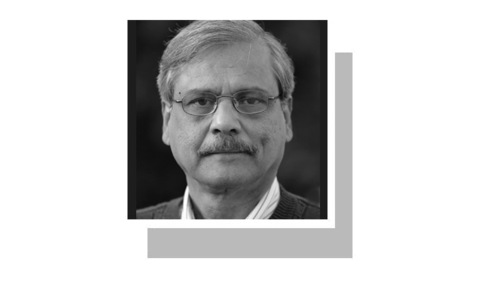AS unrest in Sindh increases over the Cholistan canal plan, the PPP seems unclear on how to cool public sentiments. There are strong concerns that the project will further disturb the ecological balance in the province and deprive it of its mandated water share, putting at risk the livelihoods of tens of thousands of people and displacing communities. Many in Sindh believe that the PPP, especially President Asif Zardari, has tacitly lent its support to the controversial scheme to please the powers that be. This is in spite of the party’s efforts to raise the issue in parliament and demand a meeting of the Council of Common Interests before the execution of the scheme.
Sindh Chief Minister Murad Ali Shah’s recent media briefing was also an attempt to put at rest public concerns over the planned canal as he claimed that work on the scheme had yet not commenced. He seems to have drawn this conclusion on the basis of his information that Punjab has still not spent the funds it had allocated for the disputed canal in the budget for the present fiscal year.
In the same breath, he sought to dispel the impression that the PPP or President Zardari were implicitly favouring the plan. “The PPP has the strength and capability to halt the scheme,” he said, implying that Prime Minister Shehbaz Sharif depended on the party’s support to stay in power. “This power will be exercised only if necessary. We are prepared to go to any lengths to protect the rights of Sindh. If our concerns are acknowledged, there will be no need for extreme measures,” he concluded. However, such reassurances from the party leadership are unlikely to dispel suspicions regarding the PPP’s alleged complicity in the project unless President Zardari himself clarifies his stance.
The growing opposition to the project calls for pausing its execution till a detailed data-based study is prepared by experts on its potential impact on Sindh’s shrinking delta due to sea intrusion driven by reduced ecological flows below Kotri. Besides, the claims that the canal would be fed by floodwaters from Jhelum or Punjab’s own share should be supported with data. Boosting agricultural productivity for food security and exports is crucial for the country. But it should not come at the cost of interprovincial harmony and the federation or the displacement of communities and tenants.
With rising water scarcity in the Indus system, it is crucial to move towards a consensus-driven policymaking process. Or the canal project may turn into yet another highly divisive project like the Kalabagh dam, something that can neither be accepted nor discarded. So far those backing the project have not shown any inclination of taking all the stakeholders on board.
Published in Dawn, April 3rd, 2025














































